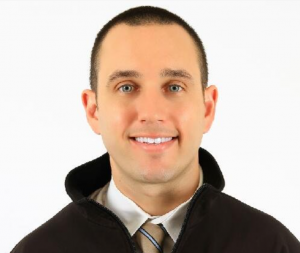Chalk Talk: Seeing differences between fixed mindset, growth mindset
 Working with young players and talking to them about their goals and dreams has often caused me to reflect back on my goals and dreams, my successes and failures.
Working with young players and talking to them about their goals and dreams has often caused me to reflect back on my goals and dreams, my successes and failures.
The more I reflect, the more questions it raises and the hungrier I become to search for answers. I often wonder to myself why my failures in hockey didn’t derail me and actually motivated me further to succeed. I wonder why other, more talented players seemed to shut down, not work hard, or quit as they grew older and experienced some adversity.
Much of this can be explained by Stanford professor Carol Dweck‘s work on mindset and praise. Dweck explains two contrasting types of praise given to kids that work toward developing two contrasting mindsets.
Warning: This may scare you when you think about your own natural habits of well-intentioned praise. I know it does for me when I think back to my early days of coaching and teaching.
Praising someone’s abilities contributes to what Dweck coins as a “fixed mindset.” These players hear that you think they are talented and that is why they are valued and important. They don’t want to do anything that will disprove this evaluation and they go on to play it safe and only take on challenges they know they will succeed at so they can continue to guarantee success, thus limiting the long term growth of their talent.
Praising someone’s EFFORTS and their PROCESS of growth, however, contributes to the “growth mindset,” causing the player to think that if they don’t take on hard things and stick to them, they will not grow and that challenge is all part of working towards mastery.
Can you see how much impact this can have on young players? Think about how often the most talented players at youth levels are told how talented they are, or referred to having a natural ability. And this same well-intentioned adult will often praise the work ethic of the less talented players because they don’t view them as having the natural talent, so in being kind, they praise their work ethic or positive attitude instead.
Can you see when considering Dweck’s work how this may actually reverse the roles in the long run? Is it any wonder why many of the most talented players at a young age end up being surpassed by less talented players in the long run who seem to work much harder? Players who have always had to work hard and continue to do so, compared to players that feel like their ability is a gift and when others start catching up, just view it as themselves “losing it” or avoiding the challenge all together to avoid disproving their talent identification from the beginning?
If they just quit or don’t try out for that team or put themselves in that situation, they can always say that they were a great player, but didn’t want to play or didn’t try, rather than embrace failure and working through it.
Do you recognize any of these tendencies in the people around you? Young players? Adults? Maybe yourself? Can you see how powerful the difference is and what it can mean to a young person to shift their mindset one way or the other for their future?
If this interests you, I encourage you to check out Dweck’s book and dig into this and reflect further about the language you use with young people and even in your own self talk. Once you have reflected on it, “the toothpaste is out of the tube,” as they say.
You can’t go back and it is powerful the changes in young people you can see when you can help them adopt the growth mindset for their hockey and their lives.
Ben Frank is the president of the Ontario Jr. Reign, a USA Hockey Model Association.
(Dec. 11, 2017)










